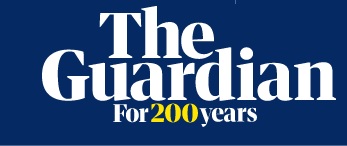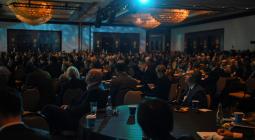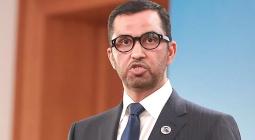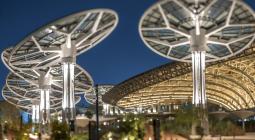Countries have not yet agreed to put fossil fuel phase-out on Cop28 agenda
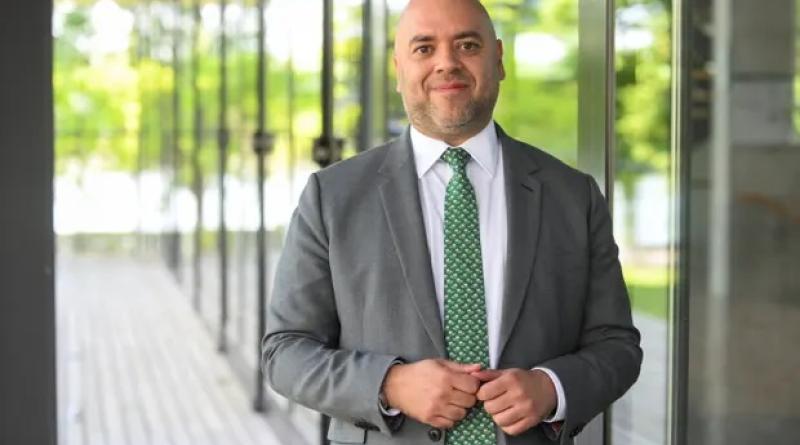
UN climate talks this year might skirt the vital question of whether and how to phase out fossil fuels, as nations have not yet agreed to discuss the issue, one of the top officials hosting the talks has said.
Majid Al Suwaidi, director-general of the Cop28 climate talks for its host nation, the United Arab Emirates, said governments were not in agreement over whether the phaseout of fossil fuels should be on the agenda for the conference, which begins in November.
“Remember, there are two sides of this discussion. There are many on one side of the discussion who would like to see the kind of language of phasing out fossil fuels,” he said. “But there are others in other different circumstances in different situations, who have different views on how that language should be formulated. And I think that that’s what the process is about – bringing everybody together with differing views and finding that common ground that works for everyone.”
Al Suwaidi has attended many conferences of the party (Cop) meetings under the UN framework convention on climate change. The UAE has come under fire for its choice of Sultan Al Jaber, the head of the country’s national oil company, Adnoc, as president of Cop28.
Adnoc is planning major increases in its oil and gas production capacity. On Thursday, civil society groups in Bonn will protest against “conflicts of interest” over Al Jaber’s dual role in the negotiations. A preparatory session for Cop28, is being held this week in Bonn.
Al Suwaidi said fossil fuels would form a key part of the discussions at Cop28, but whether a phaseout would be discussed as part of the official agenda of the talks was still up for grabs. “Our presidency is here for whatever the parties’ consensus is. The parties’ consensus is to have a discussion around fossil fuels. And we will support having a discussion around fossil fuels. It’s really up to the parties decide what they want to have on the agenda as part of this process,” he told the Guardian.
“That’s what we as a presidency are focused on: finding the solutions that will allow everyone to go away feeling that they made significant progress and feel that it was worth the discussion.”
But he added that there would still be a role for fossil fuels, even if the world targeted net zero greenhouse gas emissions by 2050, which scientists say is necessary to limit global temperature rises to 1.5C above pre-industrial levels.
The Intergovernmental Panel on Climate Change, in its latest comprehensive report on climate science, noted that there could be a small role for oil and gas, if used alongside technologies to remove carbon dioxide, even in 2050, when the world must reach net zero.
Al Suwaidi said: “We know that that the energy mix that is going to achieve net zero is, if we’re serious about this conversation, going to include fossil fuels in some form. So I think that the discussion has to be about what is the proper mix, what is the proper language that allows us to achieve the emissions reductions that we need to achieve while allowing different pathways for different countries to achieve the net zero target.”
But several prominent climate scientists, including IPCC authors, told the Guardian they were concerned about the IPCC findings being taken in this way. Although there could be a small amount of fossil fuel used while achieving this net zero, this should be minimal and not taken as a licence for fossil fuel producers to continue their operations, the scientists warned.
Al Jaber, who will attend the Bonn talks on Thursday, met the European Commission president, Ursula von der Leyen, and several top EU officials on Wednesday. In a statement emerging from that meeting, they did not mention the phaseout of fossil fuels, but referred instead to pursuing “energy systems free of unabated fossil fuels”.
The word unabated usually refers to the use of technology to capture and store carbon dioxide (CCS). Al Suwaidi also defended the use of CCS, which he said could be used to help avoid breaching the 1.5C limit.
“We can’t be exclusive [of CCS],” he said. “We need every solution on the table, every solution that works for different people is a good solution. There’s no silver bullet here.”
Hoesung Lee, chair of the IPCC, warned against over-reliance on CCS, in an interview with the Guardian at Bonn. He said it was “no free lunch” and that it would be expensive and difficult to implement, meaning there was a danger the world would continue to heat and overstep planetary boundaries, known as tipping points, that could trigger severe impacts from the climate crisis.
cover photo:Cop28 director-general Majid Al Suwaidi said fossil fuels would form a key part of discussion at the talks. Photograph: Jana Rodenbusch/Reuters
